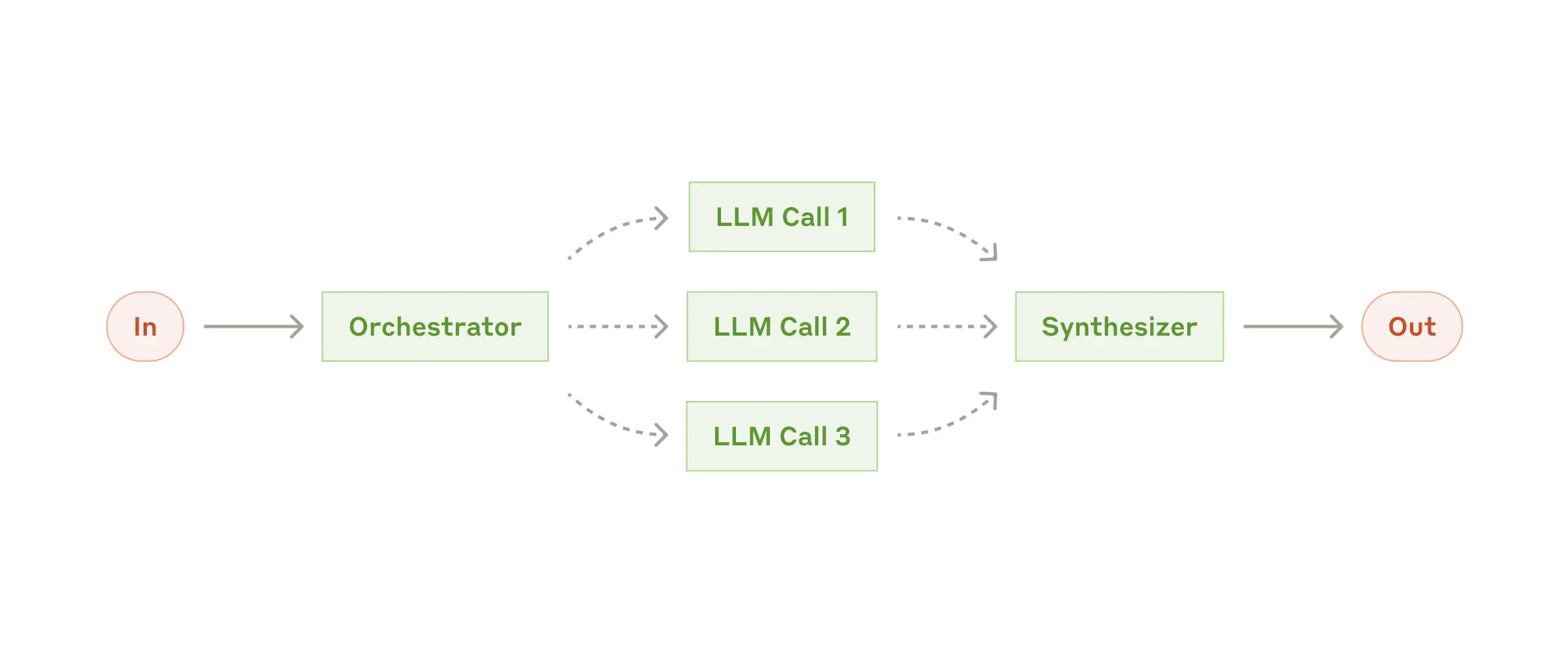
Overview
The Orchestrator pattern handles complex, multi-step tasks through dynamic planning, parallel execution, and intelligent result synthesis. It breaks down objectives into manageable steps and coordinates specialized agents.Complete Implementation
The Orchestrator workflow handles complex multi-step tasks through dynamic planning and coordination. Here’s a comprehensive implementation:Basic Orchestrator Setup
Advanced Planning Strategies
The orchestrator supports different planning approaches:Full Planning
Generate complete execution plan upfront:Iterative Planning
Plan one step at a time, adapting based on results:Configuration and Monitoring
Key Features
- Dynamic Planning: Breaks down complex objectives into manageable steps
- Parallel Execution: Tasks within each step run simultaneously
- Iterative vs Full Planning: Choose between adaptive or upfront planning
- Context Preservation: Previous results inform subsequent steps
- Intelligent Synthesis: Combines results from multiple specialized agents
Planning Modes
Full Planning
Iterative Planning
Use Cases
Complex Development Projects
Handle multi-step software development tasks with dependencies:- Code Refactoring: Analyze codebase, identify issues, implement fixes across multiple files
- Feature Implementation: Requirements analysis, design, implementation, testing, documentation
- Bug Resolution: Reproduce issue, analyze root cause, implement fix, verify solution
- CI/CD Pipeline Setup: Configure build scripts, set up testing, deploy infrastructure
Research and Analysis
Coordinate comprehensive research workflows:- Literature Reviews: Search databases, analyze papers, synthesize findings, write summaries
- Market Research: Gather competitor data, analyze trends, survey customers, compile reports
- Financial Analysis: Collect financial data, perform calculations, generate insights, create presentations
- Due Diligence: Legal review, technical assessment, financial audit, risk analysis
Content Production
Multi-stage content creation with quality assurance:- Technical Documentation: Research topic, write content, review accuracy, format for publication
- Marketing Campaigns: Market analysis, content creation, design assets, campaign testing
- Academic Papers: Literature review, data analysis, writing, peer review, revision
- Product Launches: Requirements gathering, specification writing, testing, documentation
Operations and Automation
Complex operational workflows requiring coordination:- Incident Response: Alert analysis, impact assessment, resolution planning, implementation
- Compliance Audits: Data collection, policy review, gap analysis, remediation planning
- System Migrations: Current state analysis, migration planning, execution, validation
- Performance Optimization: Monitoring analysis, bottleneck identification, optimization implementation
Setup and Installation
Clone the repository and navigate to the orchestrator workflow example:mcp_agent.secrets.yaml:
mcp_agent.config.yaml:
- Load the story from
short_story.md - Run parallel analysis (grammar, style, factual consistency)
- Compile feedback into a comprehensive report
- Write the graded report to
graded_report.md
Expected Output
The orchestrator generates a detailed execution plan and produces output similar to:- Grammar and spelling corrections
- Style adherence feedback based on APA guidelines
- Factual consistency analysis
- Overall assessment and recommendations
Full Implementation
See the complete orchestrator example with student assignment grading workflow.
